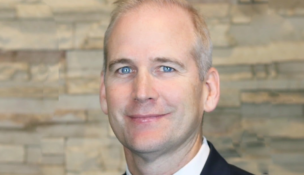Youngkin responds to Spanberger on U.Va., blasting ‘hyperbole and factual errors’
Heaphy, Ryan allege governor's letter contains inaccuracies
Kate Andrews //November 14, 2025//

FILE - Virginia Gov. Glenn Youngkin gestures as he delivers his annual State of the Commonwealth address before a joint session of the Virginia General Assembly at the Capitol, Jan. 13, 2025 in Richmond, Va. (AP Photo/Steve Helber, file)

FILE - Virginia Gov. Glenn Youngkin gestures as he delivers his annual State of the Commonwealth address before a joint session of the Virginia General Assembly at the Capitol, Jan. 13, 2025 in Richmond, Va. (AP Photo/Steve Helber, file)
Youngkin responds to Spanberger on U.Va., blasting ‘hyperbole and factual errors’
Heaphy, Ryan allege governor's letter contains inaccuracies
Kate Andrews //November 14, 2025//
Summary:
- Gov. Glenn Youngkin says Gov.-elect Abigail Spanberger‘s letter to U.Va. board is filled with “factual errors”
- Governor’s letter alleges “evidence is compelling” that U.Va. under Jim Ryan “repeatedly ignored the law.”
- Tim Heaphy, U.Va.’s former legal counsel, says Youngkin’s assertion is “factually unfounded.”
Updated Nov. 17
Gov. Glenn Youngkin wrote a heavily critical letter this week to Gov.-elect Abigail Spanberger in response to her letter attempting to delay hiring of the University of Virginia’s next president until she takes office in January 2026.
Her Nov. 12 letter to the U.Va. Board of Visitors was “riddled with hyperbole and factual errors and impugns both the Board of Visitors and the presidential search underway,” Youngkin wrote in his Nov. 13 letter to Spanberger, a U.Va. alumna.
“I am advised that this was likely the first time in the history of our commonwealth that a governor-elect attempted to interfere with the governance of a university and the fiduciary duties of individual board members,” Youngkin wrote. “Surprisingly, you have reached conclusions before you or your transition team have taken the time to learn all the facts surrounding the resignation of former U.Va. President Jim Ryan and the settlement agreement with the U.S. Department of Justice.”
Ryan resigned as president in late June, citing federal pressure in his decision to leave. The DOJ’s civil rights division had launched a probe of the university, alleging that Ryan was slow-walking the dismantling of U.Va.’s diversity, equity and inclusion programs after its board voted to dissolve such initiatives in March.
The governor wrote to Spanberger that the “DOJ did not randomly or without a predicate select U.Va. when it started its formal investigation. The evidence is compelling that the university had repeatedly ignored the law.”
Youngkin also wrote that a former general counsel for the university, whom he does not name, “confirmed in a public speech that the university ‘had some programs that crossed the legal line … we have, in certain schools or certain departments, numerical formulas and that was against the rules.'”
However, Youngkin received pushback Friday in the form of a letter from Timothy Heaphy, who served as the university’s state-appointed legal counsel from 2018 to 2022. Heaphy wrote that Youngkin incorrectly cited part of Heaphy’s September presentation to U.Va. faculty members in Youngkin’s letter to Spanberger.
Obtained by WRIC 8 News, Heaphy’s letter says that Youngkin’s assertion that the university broke federal law “is both factually unfounded and legally incorrect.”
Heaphy continues, saying that Youngkin omits the word “historically” that precedes the line “had some programs that crossed the legal line.” Heaphy writes that these programs were established before he and Ryan were employed at U.Va., and “when we learned of those programs, we didn’t ignore them but rather took steps to ensure they were modified to comply with the law.”
Upon taking office in 2022, Attorney General Jason Miyares fired Heaphy, who also was lead investigator for the U.S. House of Representatives’ Jan. 6 committee.
University governance dispute
Youngkin’s three-page letter also alleges that “neither the DOJ nor the current board leadership made Jim resign. His resignation took place under the leadership of Rector Robert Hardie, who was appointed by Governors Kaine, McAuliffe and Northam, and his resignation was encouraged personally by Rector Rusty Conner, who was the rector during Jim’s hiring.”
The governor wrote that Conner and Hardie, who completed his term as rector July 1, days after Ryan’s resignation, “persuaded” the U.Va. president to “advance his previously planned resignation by several months,” referring to Ryan’s acknowledgement in his June 26 resignation letter that he planned to step down at the end of the 2026-27 academic year.
However, Ryan wrote in his own letter Friday to U.Va.’s Faculty Senate that Youngkin’s characterization of his resignation was “inaccurate,” saying the same about a recent letter from Rector Rachel Sheridan. Ryan also alleged that the governor and U.Va. board members appointed by Youngkin, including the current rector and vice rector, may have driven the push for his resignation, rather than the DOJ.
Conner, an attorney who served on the board from 2014 to 2022, wrote in an email Saturday that he advised Ryan just before his resignation. “I ultimately concluded that he had little choice but to resign because he had no support from the Board of Visitors (if they were even aware), no ability to retain counsel (those decisions are made by the attorney general), no funding to contest the actions of the DOJ, and thus no ability to prevail.
“He would be alone in fighting the DOJ,” Conner added. “And as a consequence, many dedicated university employees would likely lose their jobs if research funding were curtailed as was represented to be threatened.”
However, Conner denied any implications that he advised Ryan to resign over the meat of the DOJ’s complaints. “My reasoning had absolutely nothing to do with whether I thought he could conform the university’s policies to what the DOJ’s guidance would require, and any representation to that effect is simply fabrication,” he wrote. “One of the ironies in all of this which calls into question the events leading to his resignation is that the university has represented in entering into the agreement with the DOJ suspending the investigations that nothing in the university’s policies would need to be altered because all necessary changes had been made under Jim Ryan.
“One simply cannot have it both ways: Jim had to resign because he was incapable of making the necessary changes, and then claiming nothing has to change when entering into the DOJ agreement because all necessary policy changes had been implemented,” Conner wrote. “Moreover, it was also represented that the DOJ had agreed to seven conditions if Jim were to resign that were described as ‘extremely favorable,’ including no financial penalty and the termination of all investigations. So I was of the view that Jim should resign upon receipt of the acknowledgement by the DOJ to the seven conditions, which was also represented as being forthcoming.”
Hardie did not respond to a message seeking comment about the governor’s letter Friday.
U.Va.’s board is made up entirely of Republican Youngkin’s appointees, and Spanberger, a Democrat, wrote that its actions over the past six months have “severely undermined the public’s and the university community’s confidence in the board’s ability to govern productively, transparently and in the best interests of the university.”
She asked for the board’s presidential search committee, which is set to meet next week with a group of finalists for in-person interviews, to “refrain from rushing this search process and from selecting the finalists for the presidency or a president until the board is at full complement and in statutory compliance, meaning that I have appointed and the General Assembly has confirmed new board members.”
Youngkin’s office did not immediately respond to a request for comment Friday.
t

















